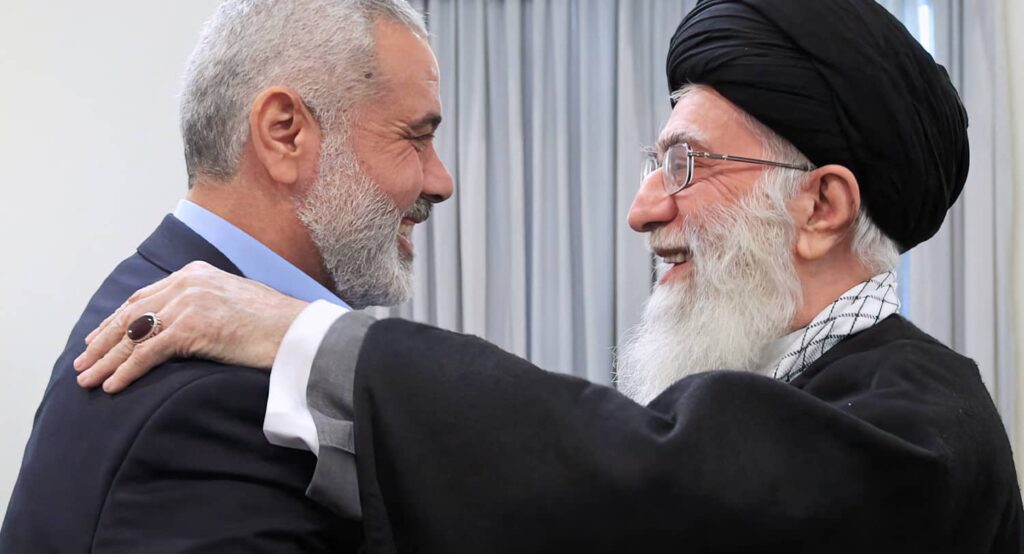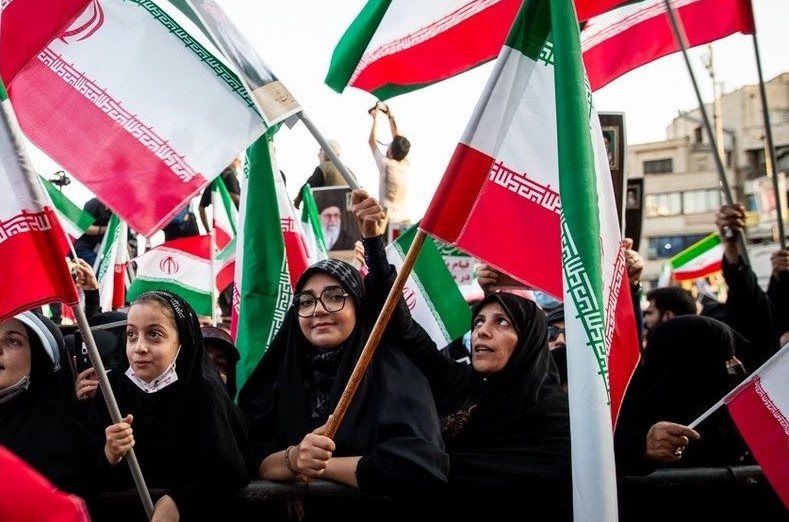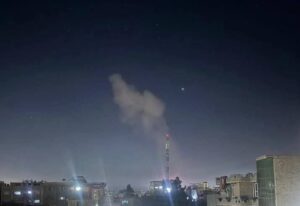Review of Afghanistan developments
Ultimately, the Israeli regime, in violation of all international norms—including the United Nations Charter—initiated a war against Iran, attacking multiple targets such as nuclear facilities, military bases, and residential areas. In addition to the damage inflicted by the Zionist regime’s airstrikes and missile attacks on several of Iran’s nuclear sites and military centers, a number of high-ranking military officials, nuclear scientists, and Iranian civilians were martyred.
In response to Israel’s aggression, Islamic Republic has launched a legitimate and proportionate retaliatory operation against the Zionist regime, codenamed ‘True Promise 3.’ Hundreds of missiles were fired into Israel, striking key strategic targets. Published footage confirms that a number of Iranian missiles successfully penetrated Israel’s ‘Iron Dome’ and other American air defense systems, hitting critical facilities deep inside the country, including in Tel Aviv the capital of the Israel regime.
As Zionist officials have stated, the attacks against Iran will continue—and Iran, in turn, will respond. Thus, it appears that a full-scale war has erupted between the Israel regime and the Islamic Republic of Iran. If this conflict persists, The USA will almost certainly intervene, and other countries may likely become involved as well. In such a scenario, the scope of this confrontation would expand dramatically, with decisive consequences for all parties involved.
Perfectly coordinated attack
It would be naive to assume that Israel unilaterally launched such a large-scale military operation against a powerful nation like Iran on its own. According to statements by Russia’s representative at the UN Security Council, intelligence assessments from Russia’s Foreign Intelligence Service (SVR) and Ministry of Defense indicate coordination between Zionist forces and United Kingdom Special Forces (UKSF) in the attack against Iran. A British airbase in Cyprus served as the operational hub for this joint mission, with The UK intelligence and military personnel playing a key role in facilitating the operation. This is just one example of Western powers’ covert cooperation with Israel in attacking Iran and there are undoubtedly hundreds more.
An examination of the events leading up to Israel’s military attack on Iran reveals a multi-faceted groundwork laid for this aggressive act. First, The United States created a deadlock in the Oman negotiations (indirect talks between Tehran and Washington) by making the unreasonable demand that Iran halt its uranium enrichment program. Then, Rafael Grossi, Director-General of the International Atomic Energy Agency (IAEA), fueled the necessary propaganda and narrative by presenting a fabricated report, drafted under the influence of Zionists and Americans, paving the way for a resolution against Iran. Finally, the Zionist regime, with logistical and intelligence support from the United States, launched its offensive.
Just as U.S. President Trump implicitly admitted his awareness of the Zionist regime’s attack – having provided them with weapons and promising to supply even more – it’s clear that America played an indirect role in this aggression. Moreover, Trump has brazenly demanded that Iran come to the negotiating table this Saturday when the sixth round of talks is scheduled to be held, threatening further attacks if Iran refuses to comply.
This scenario demonstrates that America delegated the first strike to the Zionist regime to engage Iran in conflict, enabling Washington to subsequently attack Islamic Republic with reduced risk – either during or after this confrontation.
Is Iran’s confrontation with the Zionist regime fundamentally a conflict over interests?
According to realist theory in international relations, all wars occur over interests and resources – a claim aligned with historical evidence throughout IR history. But has the Islamic Republic of Iran’s decades-long confrontation with the Zionist regime, the United States, and the broader Western front, which has now reached this critical juncture, truly been about interests and resources? Contrary to realist assumptions, Iran’s struggle against the Zionist regime, America, and the Western world is not over material interests, but rather represents a principled stand: the defense of Muslim holy sites and the oppressed Palestinian people, grounded in faith and jihad.
Related article:
Zionist regime’s Aggression against Iran: Behaviors and Needs
Thus, for years Tehran has stood alone against the aggression of the Israeli regime and its Western backers, bearing enormous costs with no conceivable material benefit. In reality, the primary obstacle preventing Iran’s reconciliation with America and the West is Tehran’s unwavering refusal – unlike most Arab states in the region – to compromise its principles and sacred values. This very foundation makes a powerful Iran utterly unacceptable to Western powers, who constantly seek pretexts to halt Iran’s rise under the guise of preventing nuclear weapons development – their most convenient allegation.

What then is the duty of others?
The Islamic Republic of Iran has stood alone for years, steadfastly defending Islamic holy sites and the defenseless Muslims of Palestine, bearing enormous costs in this path while other Islamic nations have merely been spectators. Now is the time for Muslims to fulfill their religious and moral duty. This call comes as the battle between truth and falsehood has clearly begun, reaching a point so evident that all doubts have been dispelled. At this critical juncture, it is imperative for all Muslims worldwide to stand with the Islamic Republic and form a united front alongside Israel and its supporters. Remaining mere spectators can in no way absolve the Islamic world of its religious and ethical mission against the global Zionist assault on the last bastion defending Quds and Palestine.

















